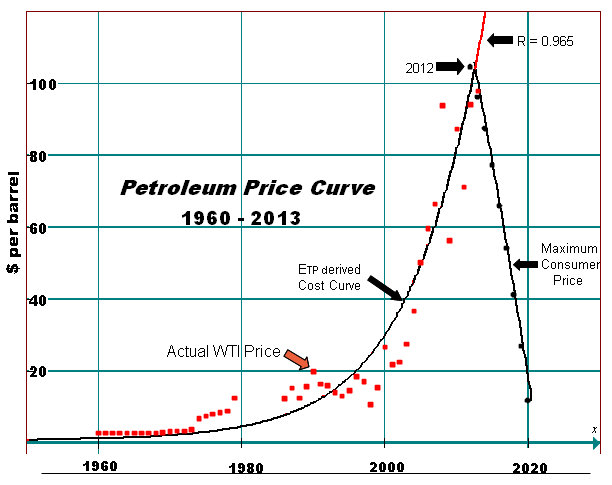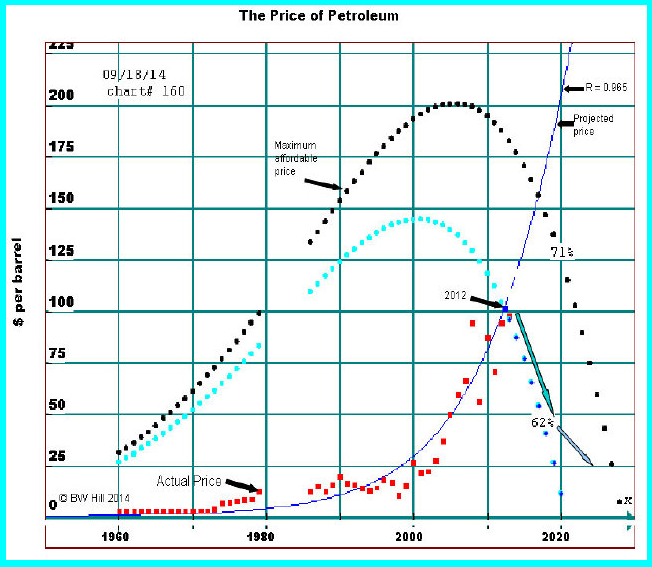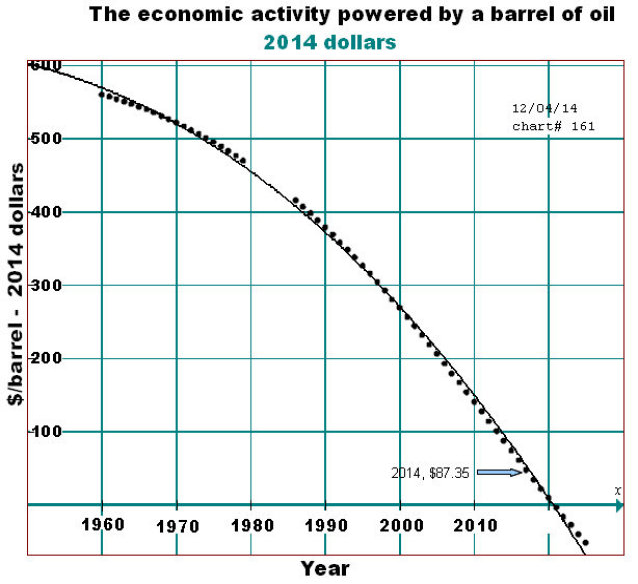Futilitist has left, but that doesn't mean we can't still talk about him behind his back: 
We all know this, from our daily-lives experiences. Everything from cars to air conditioners to light bulbs has gotten more efficient over the past couple of decades -- some of them, spectacularly more efficient. A residential air conditioner, for example, uses 25% less energy today than a standard unit did 15 years ago, for the same cooling output (same benefit). 10 years ago, my house had only incandescent lights -- today, I get the same light for about 1/5th the energy use.
Everyone knows this -- even futilitist, though he'll cling to his blanket of ignorance like the last deck chair on the Titanic. I've never seen someone so desperate to defend himself against acknowledging positive realities.
Another aspect of this that has been touched-on in the past but not explicitly discussed recently is the claim of the graph itself. I've been focusing on its lack of basis, but the graph has an interesting and useful purpose: it purports to show the economic value (value to the economy) of oil is dropping over time. But as anyone who's put even the slightest thought in the issue knows, its upside-down! There is a measure of this already: energy intensity (the inverse, actually). And even Futilitist knows that energy intensity peaked in the late 1970s and has been dropping ever since. In other words, a unit of energy produces more economic output over time, not less. Today, we get more than twice the economic benefit per unit of energy than we did in the 1970s and by the 2030s, it will be about 4x. http://www.eia.gov/todayinenergy/detail.cfm?id=10191This concept relates to analysing entropy in a single, discrete chemical engineering process. Trying to apply it to a constantly changing global aggregate of oil wells, old and new, across the world, is barking mad.
We all know this, from our daily-lives experiences. Everything from cars to air conditioners to light bulbs has gotten more efficient over the past couple of decades -- some of them, spectacularly more efficient. A residential air conditioner, for example, uses 25% less energy today than a standard unit did 15 years ago, for the same cooling output (same benefit). 10 years ago, my house had only incandescent lights -- today, I get the same light for about 1/5th the energy use.
Everyone knows this -- even futilitist, though he'll cling to his blanket of ignorance like the last deck chair on the Titanic. I've never seen someone so desperate to defend himself against acknowledging positive realities.




